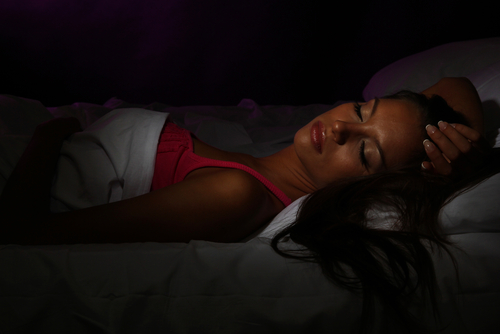 A team of researchers from Tulane University School of Medicine has found that disruption of circadian rhythms (an internal biological clock) by night shift work or disturbed sleep-wake cycles, makes breast cancer patients resistant to tamoxifen, due to disruption of melatonin production.
A team of researchers from Tulane University School of Medicine has found that disruption of circadian rhythms (an internal biological clock) by night shift work or disturbed sleep-wake cycles, makes breast cancer patients resistant to tamoxifen, due to disruption of melatonin production.
Melatonin is a hormone whose circulating levels vary in a daily cycle, allowing the synchronization of the circadian rhythms of several biological functions. Because of its antioxidant properties and its capacity to stimulate natural killer cells, melatonin has been thought to have an anti-cancer potential, especially in combination with certain drugs. Moreover, melatonin can decrease the toxic effects of radiation therapy and chemotherapy.
However, until now, no study was able to demonstrate the importance of melatonin in breast cancer treatments as an adjuvant of tamoxifen therapy.
For this research, the team used a rat model of estrogen receptors implanted with human breast cancer cells to analyze the role of melatonin in the success of tamoxifen and to demonstrate how altering light/dark cycles affects the development of breast tumors, increasing their metabolism and growth.
For this purpose, the animals were either exposed to normal light/dark cycle (12 hours of light followed by 12 hours of darkness) or in conditions where 12 hours of light was followed by 12 hours of dim light, the equivalent to faint light coming under a door.
Data collected from the study, published in Cancer Research, showed that higher levels of melatonin in the blood were observed in rats associated with the normal day/night cycle, whereas lower levels were found in those subjected to dim light. Surprisingly, melatonin acted both as a tumor metabolic inhibitor and a circadian-regulated kinase inhibitor to reestablish the sensitivity of breast tumors to tamoxifen and tumor regression, since rats that lived in 12 hours of darkness or those receiving melatonin supplementation, upon administration of tamoxifen, displayed reduced cancer growth.
[adrotate group=”1″]
Dr. David Blask, Principal investigator and co-leader of Tulane’s Circadian Cancer Biology Group, stated in a press release, “high melatonin levels at night put breast cancer cells to ‘sleep’ by turning off key growth mechanisms. These cells are vulnerable to tamoxifen. But when the lights are on and melatonin is suppressed, breast cancer cells ‘wake up’ and ignore tamoxifen.”
Breast cancer is the second leading cause of cancer death in women, surpassed only by lung cancer, with roughly 232,670 women diagnosed with invasive breast cancer every year in the US alone.
This study can have important implications for women being treated with tamoxifen who are regularly exposed to light at night due to sleep problems, working night shifts or exposed to light from computer and TV screens, transforming light at night a risk to consider for developing resistance to tamoxifen and possibly other anticancer drugs. Importantly, the use of melatonin in combination with tamoxifen can become a standard treatment for breast cancer patients.


